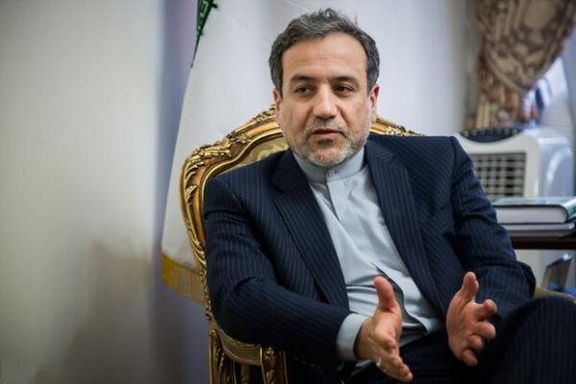Iran's Negotiating Power Was Backed By Missiles, Says Ex-Official

Former chief nuclear negotiator Abbas Araqchi has acknowledged that Iran used its missiles as a powerful leverage during the nuclear talks with the West.

Former chief nuclear negotiator Abbas Araqchi has acknowledged that Iran used its missiles as a powerful leverage during the nuclear talks with the West.
"What kept the United States, the three European states as well as Russia and China at the negotiating table was not simply our diplomatic strength. It was also our missiles that did not allow anyone to attack our nuclear establishments."
In an interview with reformist Jamaran news website that was also carried by several other Iranian news outlets, Araqchi (Araghchi) praised both the IRGC and former Foreign Minister Mohammad Javad Zarif for their role in the negotiations.
This comes while Zarif had at least once spoken about the IRGC's counter-productive role in Iran's diplomacy and questioned its link with Russia. Araqchi also claimed that Zarif had strongly defended the IRGC.
Iran with an arsenal of hundred medium-range missiles, and more recently drones, has proven it can inflict harm on countries in the Middle East, such as the 2019 attack on Saudi Arabia’s oil installation. This has made Israel and Arab states very nervous and determined to curb Tehran’s missile program that could also be used for carrying nuclear weapons.
Meanwhile, he warned that "those who try to introduce Iran and its political system as a threat are in fact ruining Iran's foreign relations and their action leads to degradation of Iran's cooperation with other countries.

Incidentally, Iranian hardliners and IRGC's top officers' usual threats against Israel and other regional players and their bragging about closing the strait of Hormuz raise tensions between Iran and regional countries.
Araqchi said that both defaming and delegitimizing Iran are "very dangerous." He added that "we should not allow constant demonstrations against Iran" in Europe and other countries. This creates an atmosphere in which other countries begin to have doubts about cooperation with Iran." He charged that Israel is behind such moves.
Meanwhile, Araqchi called the "Neither east, Nor West" motto a precious legacy of Ayatollah Ruhollah Khomeini, the founder of the Islamic Republic. His praise for neutrality came one day after President Ebrahim Raisi returned from a visit to China to boost Iran's "Looking East" policy.
In another part of the interview, Araqchi criticized the hardliners who say Iran does not benefit from the nuclear talks. He said: "We entered the talks because we did not want to be under the West's domination. They were worried about Iran's nuclear program and wanted us to stop the program. I have always said I wish we had filmed the negotiations to show to the nation how we resisted the bullies."
Araqchi said that US nuclear negotiators were significant political figures such as current CIA Chief William Burns, Deputy Secretary of State Wendy Sherman and US national Security Advisor Jake Sullivan. "We were negotiating with them. So, we have self-confidence," he said.
Criticizing Iranian hardliners for mistaking interaction with friendship, Araqchi said the critics should know that diplomats act based on protocols. He also added: "The principles and strategy of foreign policy are determined elsewhere [presumably by Supreme Leader Ali Khamenei] but tactics are designed at the Foreign Ministry. Friendship and enmity are meaningless in foreign policy and international relations.
Araqchi praised Iran's deterrent power and said: "We owe our certainty about our security largely to our deterrent power and the capabilities of our defense industries.
Araqchi, born in 1962, is a career diplomat who joined the foreign ministry while he was still fighting in the Iran-Iraq war in the 1980s. He passed the entrance exam of the foreign ministry's college, studied there, and graduated by the end of the war. He was Iran's ambassador to Finland (1999-2003), Iran's ambassador to Japan (2007-2011), the Foreign Ministry Spokesman (2013) and Deputy Foreign Minister for Political Affairs (2017-2021).